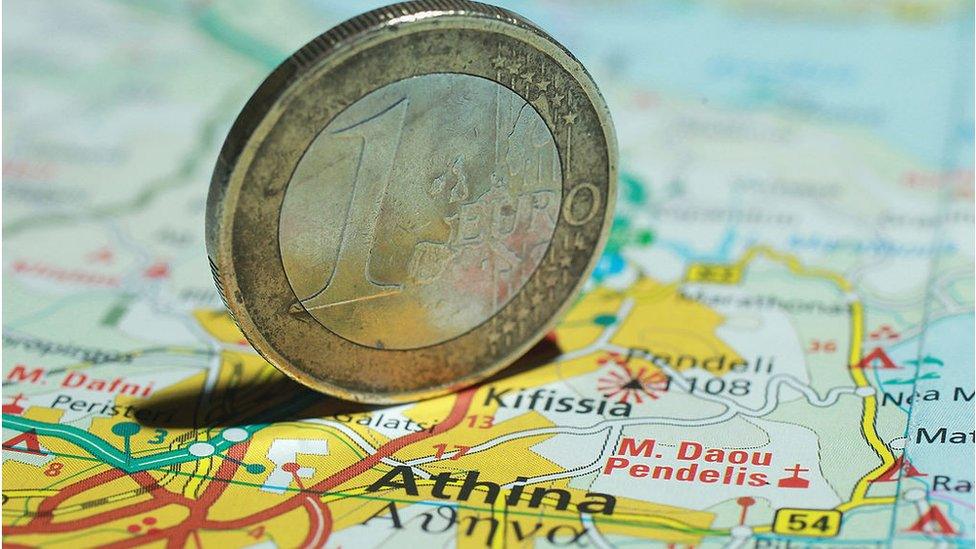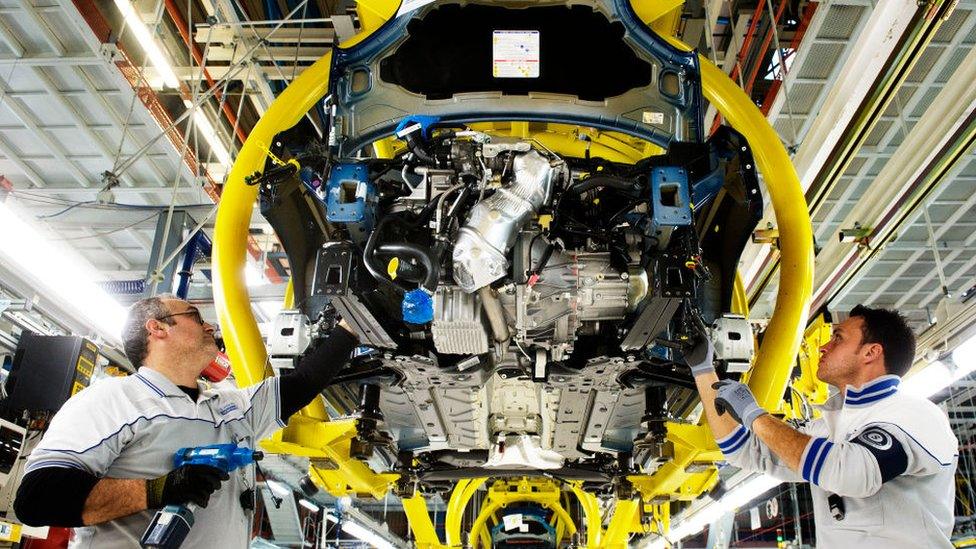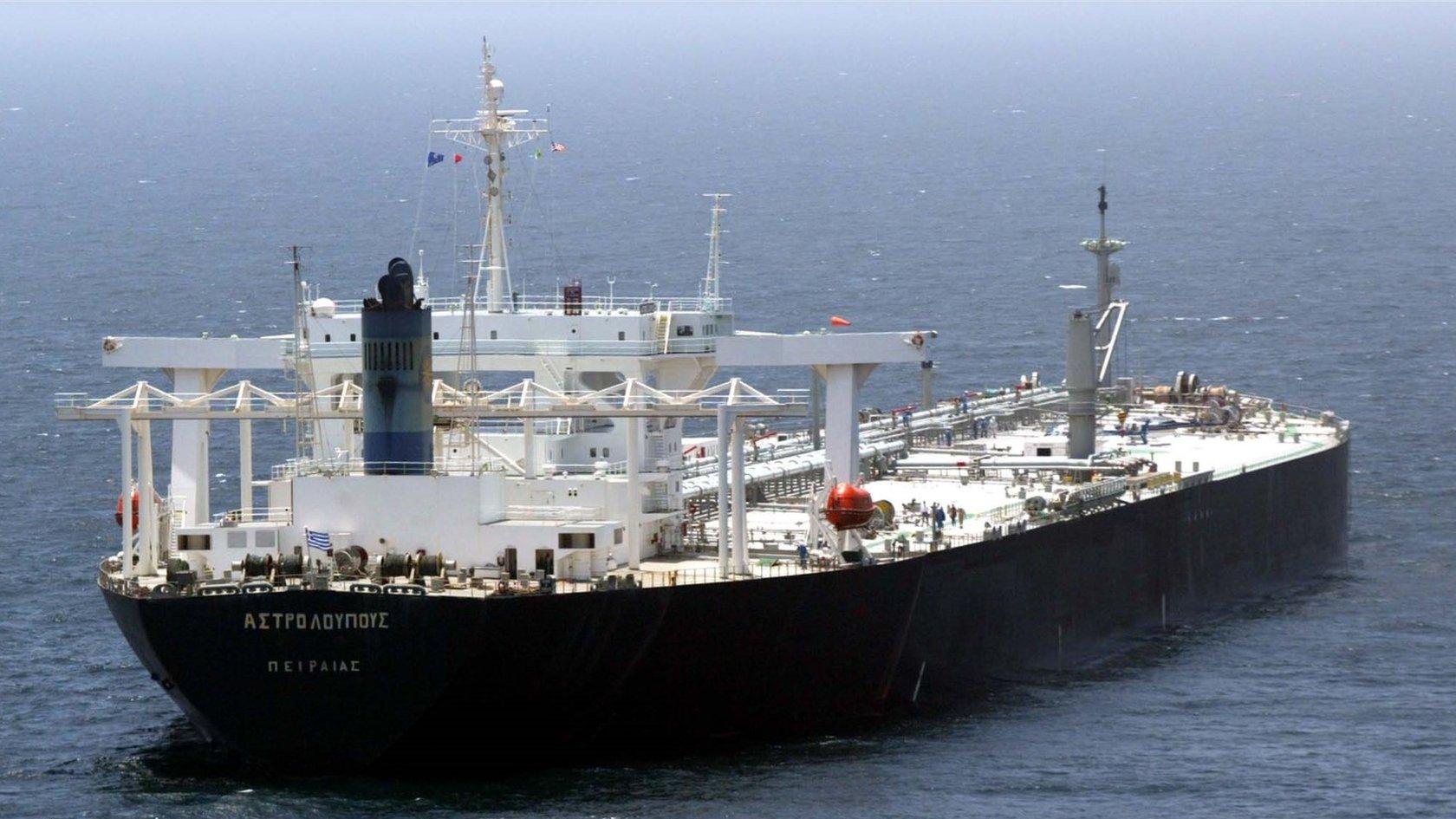IMF: Greece among best performers in eurozone
- Published
- comments

Greece has entered a period of economic growth that puts it "among the best performers in the eurozone".
That rather striking judgement comes from the International Monetary Fund in a new report on the Greek economy, external.
A senior IMF official said there were a lot of positive developments to point to.
That said, the IMF said the economy remains vulnerable, further reforms are needed and unemployment remains unacceptably high.
Greece was where the eurozone financial crisis started back in 2009, and it was the economy hardest hit.
It is also the economy that has received most by way of bailout loans, some from the IMF.
But most of the money came from the eurozone to total more than a quarter of a trillion euros.
Erratic growth
Those loans came with conditions. Greece had to take action to reduce the government's unsustainable borrowing needs, and to reform the economy to support growth.
There were changes to labour regulation, more competition in the business world and privatisation among many other elements.
Both strands encountered resistance in Greece, and the bailout terms led to political crises.
But the IMF and the European Union both say the country has made progress.
Growth resumed in 2013, but it was erratic at first.
Last year, however, Greece managed growth of slightly more than 2% for the first time in more than decade.
This year, the IMF forecasts somewhat better. Peter Dohlman, the IMF's mission chief for Greece, says that's enough to put Greece "in the upper tier of the eurozone growth table".
'Crippled banks'
It is certainly progress, indeed a striking change in performance, though the favourable comparison does partly reflect the slowdown that has hit the eurozone as a whole in the last year.
It is also important to recall how much damage the Greek economy has suffered. It is still about 24% smaller than before the crisis.
Unemployment has come down markedly, including for young people. But it still very high, external: 18.5% for the adult population as a whole and close to 40% for the young.
The IMF says the reform work is incomplete and the economy remains vulnerable.
A particular concern is the banks which still have high levels of loans where payments are not up to date.
Mr Dohlman describes the banks as "crippled" by this problem. That is reflected in the fact that private sector credit continues to decline.
He also says more work is needed on labour market reform so that employers can respond more easily to changing conditions.
Reforms on competition also continue to lag, he says.
A meeting of eurozone finance ministers this week agreed that Greece needs to do more.
They discussed whether to go ahead with some debt relief measures that had already been agreed in principle but subject to the Greek government completing agreed reforms.
They decided to wait until Greece had made more progress, though the European Commissioner Pierre Moscovici expressed confidence that the debt relief measures, worth almost a billion euros, could be decided by the next meeting in April at the latest.
- Published31 January 2019

- Published8 November 2018
